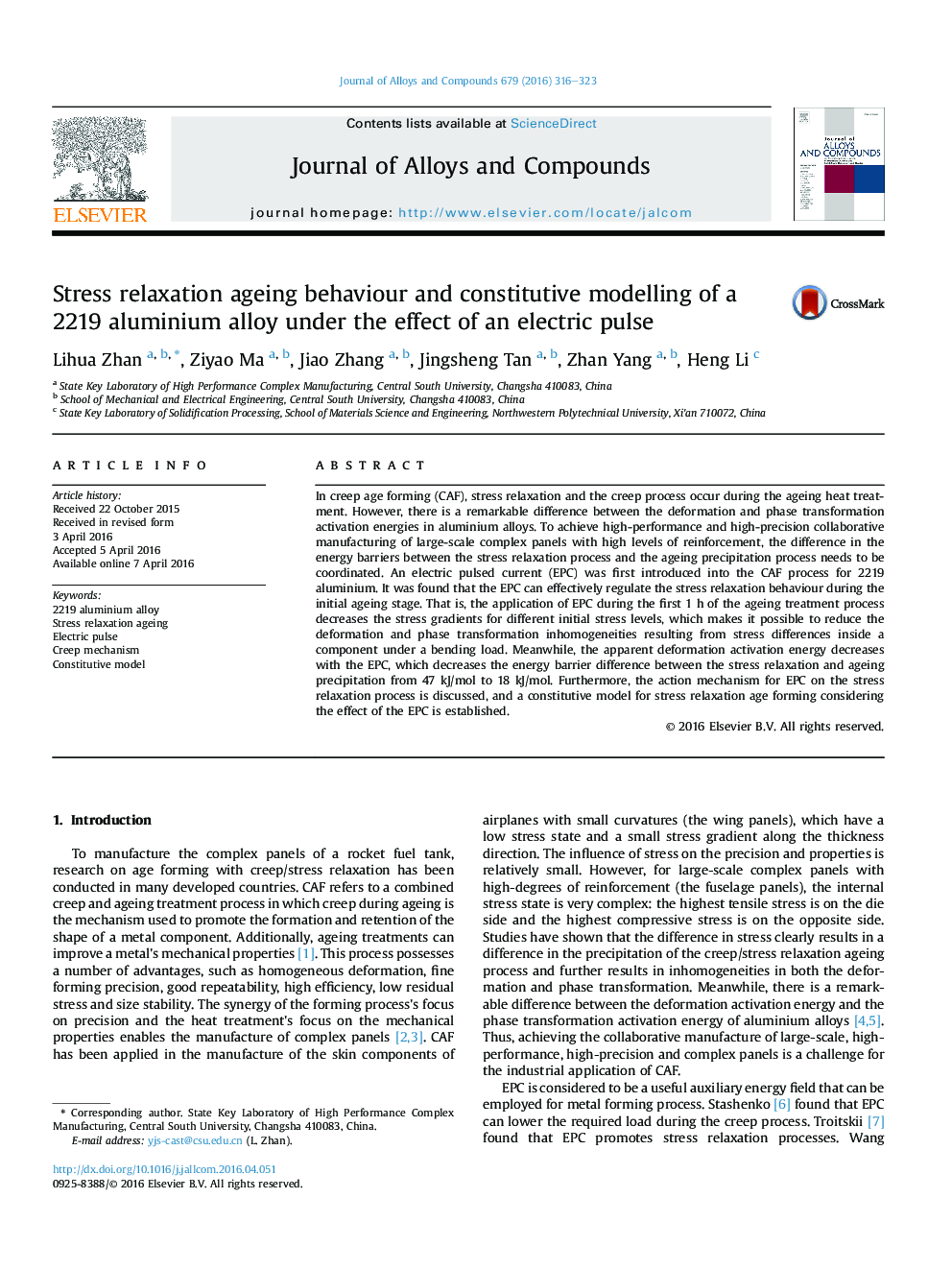| Article ID | Journal | Published Year | Pages | File Type |
|---|---|---|---|---|
| 1605670 | Journal of Alloys and Compounds | 2016 | 8 Pages |
Abstract
In creep age forming (CAF), stress relaxation and the creep process occur during the ageing heat treatment. However, there is a remarkable difference between the deformation and phase transformation activation energies in aluminium alloys. To achieve high-performance and high-precision collaborative manufacturing of large-scale complex panels with high levels of reinforcement, the difference in the energy barriers between the stress relaxation process and the ageing precipitation process needs to be coordinated. An electric pulsed current (EPC) was first introduced into the CAF process for 2219 aluminium. It was found that the EPC can effectively regulate the stress relaxation behaviour during the initial ageing stage. That is, the application of EPC during the first 1Â h of the ageing treatment process decreases the stress gradients for different initial stress levels, which makes it possible to reduce the deformation and phase transformation inhomogeneities resulting from stress differences inside a component under a bending load. Meanwhile, the apparent deformation activation energy decreases with the EPC, which decreases the energy barrier difference between the stress relaxation and ageing precipitation from 47Â kJ/mol to 18Â kJ/mol. Furthermore, the action mechanism for EPC on the stress relaxation process is discussed, and a constitutive model for stress relaxation age forming considering the effect of the EPC is established.
Related Topics
Physical Sciences and Engineering
Materials Science
Metals and Alloys
Authors
Lihua Zhan, Ziyao Ma, Jiao Zhang, Jingsheng Tan, Zhan Yang, Heng Li,
